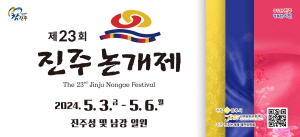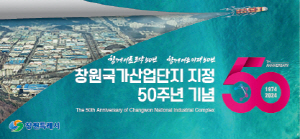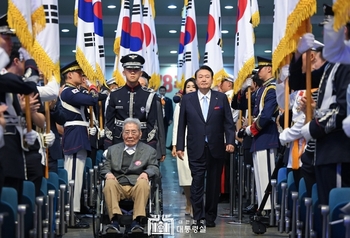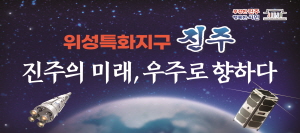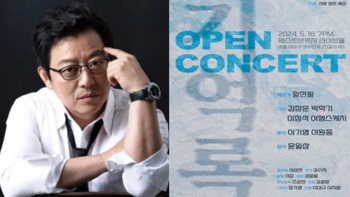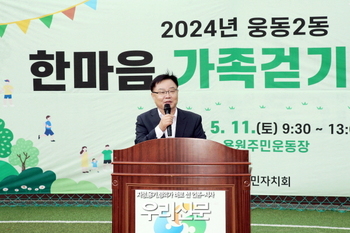|
자유한국당 국제국은 5일 보도자료를 통해 WSJ 5월 4일자 보도를 국문과 영문으로 공개했다. 다음은 보도자료 내용이다.
Wall Street Journal 5월 4일자 보도 2017. 5.4 Trump’s Plan to Isolate North Korea Faces Trouble?in the South 북한을 고립시키려는 트럼프 대통령의 계획이 한국에서 난관에 봉착했다.
북한을 고립시키기 위한 미국의 노력은 다음 주 한국 대선에서 주요한 시험에 직면하게 되었다. 이번 대선에서 대북 포용정책을 확대하는 것을 주장하는 후보가 당선에 유리한 상황이다.
문재인은 햇볕정책으로 인도적, 경제적 대북지원을 했던 시기에 현 북한 지도자의 아버지를 10년 전에 평양에서 만났던 노무현 대통령의 비서실장이었다.
문재인 후보는 당선된다면 '햇볕정책 2.0'을 통해 북한에 대한 경제적 교류를 새롭게 재추진할 것이라고 전했다. 탄핵된 박근혜 대통령의 기존 대북강경노선에 큰 변화가 예상되며 한미관계를 불편하게 할 가능성이 있다.
지난 주 틸러슨 미 국무장관은 유엔안전보장이사회의 각료회담에서 각국이 "북한과의 외교 관계를 중단 또는 축소하고, 필요한 자원의 흐름을 차단할 것"을 촉구했다.
박 前대통령도 역시 북한과 가장 가까운 동맹국들에게 군사적, 경제적 원조를 약속하면서 북한과 세계 여러나라들과의 유대 관계를 끊기 위해 노력했었다. 뇌물 및 권력 남용에 따른 박대통령 탄핵으로 인해 다음 주 화요일 특별 선거가 실시된다.
유권자로부터 약 40%의 지지를 받고 있는 문재인은 최근 몇 주간 북한의 도발로 대북 강경노선을 주장하는 경쟁자가 상승세를 타면서 그의 지지세가 약화되었다. 이러한 상황에 대처하기 위해 문후보는 북한의 도발로 인해 강경한 대북제재를 피하는 것이 어렵다고 말하며 북한에 대한 그의 발언수위를 높였다.
최근 보수 경쟁자들의 분열로 문후보의 지지세는 확대되고 있다. 지난 달 문후보의 승리 확률을 55 %로 낮춘 유라시아 그룹은 이번 주에 승리 확률을 80%로 올렸다. 대선에서는 가장 많은 표를 얻은 후보가 승리한다.
문재인은 타 후보들과는 다르게 대북 고립 정책은 효과가 없다고 주장한다. 그는 햇볕정책 당시 남북이 공동으로 운영했던 산업 공단과 관광 리조트 사업과 같은 남북 사업을 재개하고자 한다. 두 사업들을 통해 잠재적으로 북한에 수백만 달러가 전달될 수 있다.
문재인의 경쟁자들은 북한의 무기 개발을 저지하기 위한 유엔 안보리의 대북제재 정책에 반하지 않고 대북 사업을 재추진할 수 있는지 의문을 품고 있다.
문후보는 현재 제시한 사업에 그치지 않을 전망이다. 문후보 캠프 관계자는 두 사업을 다시 추진하는 것은 디딤돌에 불과하다며 문 후보는 남북간 경제 통일을 추진할 것이며, 김정은과도 남북 정상회담을 추진할 것이라고 밝혔다.
문 후보는 또한 최근 한반도 배치가 완료돼 운영에 들어간 대북방어 시스템인 사드(THAAD,고고도미사일방어체계)에 대한 재평가도 할 것이라고 말했다.
문재인 후보는 월스트리트 저널 인터뷰 요청을 거절했다. 그러나 문재인 후보 캠프에서 대북 정책 자문을 맡고 있는 최종건 연세대 국제관계학 교수는 “문 후보의 대북정책은 전임자와 다를 것”이라고 밝혔다.
그는 “햇볕정책 시행 당시 한국은 핵포기 조건 없이 북한을 도왔지만 문 후보는 명확하게 비핵화를 내세우며 남북 교류를 시행할 것”이라고 말했다.
지난 남북정상회담 이후 10년이 흐른 지금, 북한은 정치적 문제가 아닌 경제적 난관에 봉착해있다고 최교수는 전했다.
그는 북한과의 이념 싸움에서 한국이 승리했기에 북한을 더 이상 이념적으로 상대하지 않아야 하며, 북한을 오직 잃어버렸던 경제적 기회로서 봐야하고, 북한을 자본주의화하기 위해 북에 가야한다고 했다.
이러한 북한에 대한 재접근 방식은 트럼프 대통령의 정책과 갈등을 빚을 소지가 있다. 틸러슨 미 국무장관은 지난주 북한에 대한 “제재를 적극적으로 이행하는 것에 주저하지 말 것”을 주문했다.
연세대학교의 한국 외교 전문가인 제프리 로버트슨 교수는 문재인 후보의 정책이 한미 동맹관계를 왜곡시킬 수 있다고 말했다.
그는 "북한을 고립시키는 미국의 모든 정책은 새로운 한국 정부의 정책과 충돌할 것"이라고 말했다.
또한 북한이 핵과 미사일 개발 계획에 대한 어떠한 규제도 수용할 것인지에 대한 여부가 불투명하다. 북한은 현재까지 외부의 압력에 지속적으로 저항해왔다.
부산 대학교 정치학과 로버트 켈리 교수는 조지 W 부시 대통령의 대북 강경정책에 저항했던 노무현 전 대통령의 2000년대 초반의 잠재적 긴장상태와 비교했다.
켈리 교수는 문후보의 대북 화해정책은 북한의 핵과 미사일 개발, 금년초 김정은의 이복형 김정남 암살사건 연루와 관련지어 볼 때, 한국을 국제사회에서 소외시킬 수 있다고 이야기한다.
켈리 교수는 "나는 잘 이해되지 않는다"라고 말한다. "만약 문후보가 햇볕 정책으로 돌아가기를 원한다면, 이번에는 다른 점이 무엇인지 증명해야한다"고 전했다.
Wall Street Journal (영문) 2017. 5.4
Trump’s Plan to Isolate North Korea Faces Trouble?in the South
SEOUL?The U.S. bid to isolate North Korea faces a major test next week in South Korea, where an advocate of more engagement with Pyongyang is favored to win the presidential election.
Moon Jae-in was chief of staff a decade ago when South Korea’s then-president met in Pyongyang with the current North Korean leader’s father during a period when Seoul showered the North with humanitarian and economic aid, called the Sunshine Policy.
If elected, as appears increasingly likely, Mr. Moon has suggested he would renew such efforts, engaging economically with the North in a policy his advisers call Sunshine 2.0. That would mark a big shift from the hard-line approach of ousted President Park Geun-hye and potentially put Seoul at odds with Washington.
Last week, U.S. Secretary of State Rex Tillerson urged countries at a United Nations Security Council ministerial session “to suspend or downgrade diplomatic relations with North Korea,” and to “cut off a flow of needed resources.”
Ms. Park, too, had sought to sever Pyongyang’s ties with the rest of the world by wooing North Korea’s closest allies with military and economic aid. Her impeachment following bribery and abuse-of-power accusations triggered Tuesday’s special election.
Mr. Moon, who has about 40% support from eligible voters, saw his lead erode in recent weeks as North Korean provocations lifted the prospects of a rival who called for a tougher line on North Korea. In response, Mr. Moon toughened his rhetoric on Pyongyang, saying its provocations are making it difficult to avoid tightening sanctions.
In recent days, Mr. Moon’s lead has widened as his more conservative rivals have split the remaining votes. Eurasia Group, which had lowered Mr. Moon’s chances of winning last month to 55%, this week boosted those odds to 80%. The candidate with the most votes wins.
In contrast to his fellow candidates, Mr. Moon has argued that isolation hasn’t worked. He has pushed for reopening two inter-Korean projects from the Sunshine Policy era?a jointly-run industrial business park and a tourist resort. Both could potentially send millions of dollars to North Korea.
Mr. Moon’s rivals have questioned whether South Korea can reopen those projects without violating U.N. Security Council resolutions aimed at reining in North Korea’s weapons program.
And Mr. Moon wouldn’t stop there. His advisers say that restarting the two projects would be just a “steppingstone” toward what Mr. Moon calls “economic unification,” with many more inter-Korean projects to come. He also would seek to organize a summit with the North Korean leader, Kim Jong Un, his advisers said.
Mr. Moon said he also would reassess whether to allow a U.S.-backed antimissile system aimed at blocking a North Korean attack to operate on South Korean soil. The system, called Thaad, began operating this week.
Mr. Moon declined requests for an interview. But Choi Jong-kun, a professor of international relations at Yonsei University in Seoul who helped Mr. Moon craft his platform on North Korea, said in an interview that Mr. Moon’s approach would differ from those of his predecessors.
Under the Sunshine Policy, Mr. Choi said, South Korea often supplied aid without demanding progress on denuclearization. In contrast, Mr. Moon would explicitly link inter-Korean cooperation with such efforts.
A decade after the last inter-Korean summit, Mr. Choi said that North Korea should be confronted as an economic problem, not a political one.
“North Korea should not be dealt with in an ideological domain because it’s already been won,” Mr. Choi said. “We see it primarily as a lost economic opportunity. We should be there to capitalize North Korea.”
That attempt at rapprochement with the North is likely to bring South Korea into conflict with Mr. Trump’s policy. Mr. Tillerson last week called for “no relaxation in the vigorous implementation of sanctions” on North Korea.
Jeffrey Robertson, an expert on South Korean diplomacy at Yonsei University, said Mr. Moon’s policies would potentially strain the alliance between Washington and Seoul.
“Any U.S. policy to further isolate North Korea is going to come up against the policies of the new South Korean administration,” he said.
Also unclear is whether North Korea would accept any restraints on its nuclear and missile programs. It has so far steadfastly resisted pressure from abroad.
Robert Kelly, a professor of political science at Pusan National University in South Korea, compared the potential tension to the early 2000s, when Mr. Moon’s engagement-minded boss Roh Moo-hyun, South Korea’s then-president, struggled with the George W. Bush administration’s tougher approach.
Mr. Kelly said Mr. Moon’s conciliatory policy might make South Korea a global outlier, given the North’s nuclear and missile programs, and such controversies as its alleged involvement in the killing earlier this year of Kim Jong Nam, the half brother of Kim Jong Un.
“I don’t see it meshing well,” Mr. Kelly said. “If Moon wants to go back to the Sunshine Policy, he has to prove what’s different this time around.”
Write to Jonathan Cheng at jonathan.cheng@wsj.com <저작권자 ⓒ 시사우리신문 무단전재 및 재배포 금지>

댓글
|
많이 본 기사
|

